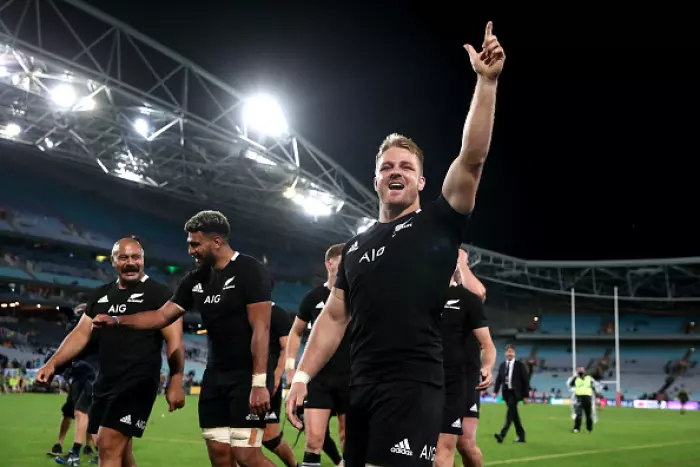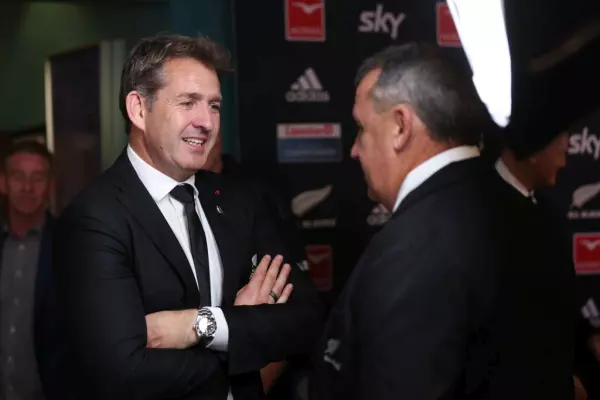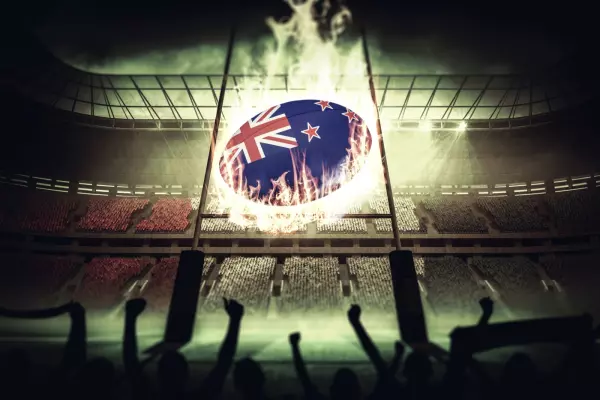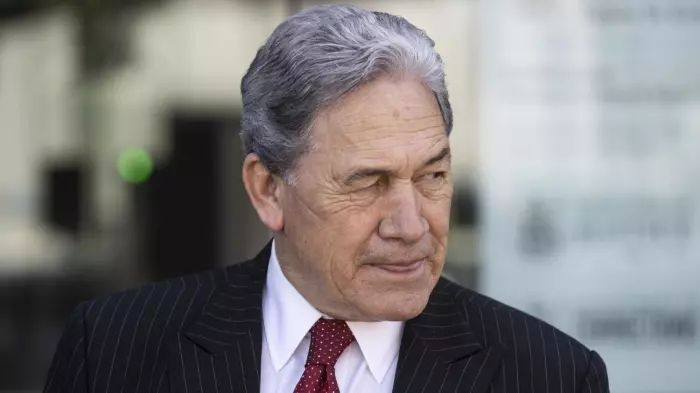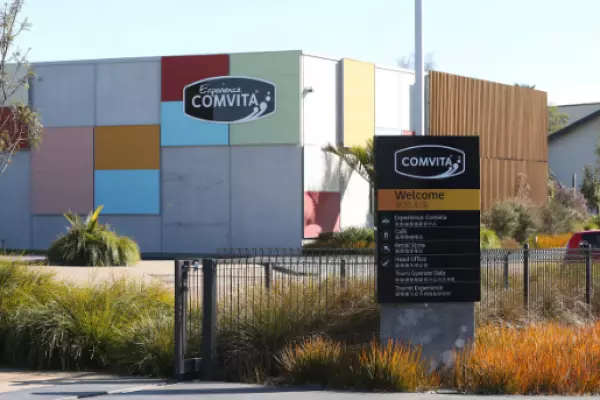“It's like herding cats. It's a very tough road to go down."
The quote is not from a Silver Lake executive describing the tortuous journey of negotiating with New Zealand Rugby (the game, not just the organisation).
But it may well have been. And dollars to doughnuts it’s been muttered more than once in Silver Lake’s Californian HQ during the past six months.
The candid admission is actually from a European-based private equity-type exasperated over a similar process, in this case trying to persuade Spanish football’s La Liga league to sell a stake in its competition for a not inconsiderable sum.
The point is that while there is a gold rush of sorts by private equity into global professional sport – fuelled by panicked leagues and federations feeling the chill of a covid-inspired financial winter – the men wielding the chequebooks and promising greater riches are often not being embraced by key stakeholders like fans and players.
The negative reaction to the New Zealand Rugby (NZR) suits courting Silver Lake, the US-based conglomerate with $US79 billion of assets on its books, has been ferocious and sustained.
"This is truly dreadful," Kiwi Hollywood actor Sam Neill thundered in a tweet. "The [All Blacks] are in danger of becoming just another bloody corporation."
Neill’s reaction channelled European soccer fans when a breakaway competition imaginatively named Super League collapsed in 48 hours after vehement opposition from the sport’s supporters, governing bodies, elected leaders of France and Britain, and even Prince William – and then, ultimately, prominent players and coaches.
JPMorgan Chase, which was financing the deal, was forced into a grovelling apology, admitting it had ‘misjudged’ the reaction. The Super League venture illustrated how fan outrage is a significant barrier to getting private equity deals done.
"I think it's made financial investors re-evaluate," said Joseph DaGrosa, founder of Kapital Football Group, which has plans to acquire three top-flight clubs in Brazil, Portugal and Belgium.
"I'm not so sure it's made it more difficult to buy, from the perspective of there's plenty of willing sellers out there right now. But I think it was a wake-up call to potential buyers, particularly financial buyers, who perhaps didn't acknowledge the importance of making sure you have the support of the fans."
A penny for the thoughts of Silver Lake then. It may be a lot smaller scale venture, but the Americans have been battered from pillar to post in this country over their original offer of $387 million for a 12.5% stake of NZ Rugby’s commercial operations, which was agreed to by provincial unions but rejected by the Players’ Association.
Good luck with discovering how Silver Lake feels about that.
Getting any public comment out of the firm, which also owns a stake in Manchester City, is more challenging than convincing the Springboks to abandon their kick and chase game for free-running rugby.
Silver Lake has indeed played a scrupulous game, at least on the surface anyway. Nobody from the company has commented on or off the record about the deal. Nor has Silver Lake gone away despite the hostile opposition of the Players Association and some high profile former players who quite rightly called out the original deal.
In other words, it has continued to herd the cats, the latest twist being a reportedly revamped offer to dilute its holding down to 7.5% but offering more money – not a great sign of a shrewd first deal, it must be said.
There are growing signs this will be enough to get the deal done.
THE WEDDING IS LIKELY TO HAPPEN
Media have reported that the Players’ Association has abandoned its counter suggestion of a public float to raise the same amount and has now been brought into direct dialogue with Silver Lake.
Undoubtedly, the players have also secured more concessions and had certain concerns met, including how the haka is used commercially.
It will still take some time to heal the trust with both the players and the public after it was savaged by the negotiations, which were not helped by unnecessary lecturing from some of NZ Rugby’s hard heads, and a far from transparent process.
The “we know better” attitude soured key powerbrokers and fans, as did the kowtowing of the country’s provincial unions who, for a $39 million payoff, meekly signed off on the first deal.
To be fair, none of this was Silver Lake’s doing. It’s a minor surprise their execs didn’t run a mile after the initial backlash. Despite rugby presenting far more complexity and challenges than other sports, private equity is dipping its toes into it, and it has hung in there.
Insiders say this is because Silver Lake genuinely believes there are 100 million potential All Blacks fans around the globe – and it knows how to reach them in a way that will unlock the millions needed to keep the men in black on top of the world, while also delivering a tasty profit to the company.
THE CONUNDRUM
I don’t doubt Silver Lake’s ability to build an international digital platform to reach those 100 million fans it believes it can cultivate into All Blacks diehards.
I just don’t understand how they can achieve it within international rugby’s selfish constraints and competing club and country agendas – not to mention successfully manage the critical subject of player welfare.
Manchester City is 10 month a year operation. NBA clubs play two to three times a week and more than 80 games a season. This provides volume to drive constant fan consumption, live broadcasting, ticket sales, sponsor benefits, merchandising and behind-the-scenes content.
The All Blacks’ player base is already tapped out at 12 to 15 tests a year. That is also proving to be a tipping point for player welfare.
But even if the All Blacks could play more tests, who will they be against? Tests are confined by World Rugby’s schedule and there’s a limit to how many revenue-generating “tests” like this month’s one against the USA Eagles in Washington they can add annually.
The ambition of European and Japanese clubs only aggravates the conundrum.
Why would top English and French clubs release star overseas-contracted players for one-off tests against the All Blacks that sit outside World Rugby’s agreed schedule? They don’t even do it now for tests on the schedule!
Perhaps Silver Lake has some secret wizardry up its sleeve. Maybe they are the smartest guys in the room.
The only way I see out is an elite group of PE firms driven by CVC Capital Partners and Silver Lake banding their rugby assets together to convince World Rugby and international unions to redraw the calendar from scratch and also pacify the English and French clubs.
But it will be like trying to nail jelly to the wall and hopping on one leg while simultaneously herding cats.
GOVERNANCE V COMMERCIALISM
Among Silver Lake’s many challenges is presenting a coherent strategic vision that recognises NZ Rugby's primary job is governance of the game at all levels, rather than coming along for the ride as a nodding and compliant capital venture partner. The passivity and diplomacy Silver Lake has shown to date need to be ongoing if Kiwi fans are to be won over.
In other words, sit in the shadows and make smart decisions.
How the new commercial board, with two Silver Lake representatives on it, interacts with the NZ Rugby Board will also be crucial, given the latter remains tasked with governing, organising and facilitating the sport, while the former needs to make decisions motivated by commercial gain.
This is counterintuitive to the ethos of traditional private equity companies and the onus is on Silver Lake to clearly understand the value chain (fans, players, provincial unions, sponsors, broadcasters and so on) and know what buttons it can push and which it dare not, such as turning the All Blacks into some weird hybrid of the Harlem Globetrotters playing meaningless tests in far-flung places against no-name opposition is the first scenario that springs to mind.
It's not all gloom and doom, though. There are signs PE is capable of this.
F1 SUCCESS HAS PRIVATE EQUITY AND SPORT SPINNING
The poster boy for success in PE investment in professional sport is Luxembourg-based CVC Capital Partners which ironically holds a substantial portfolio of rugby assets including stakes in the Six Nations and English club premiership, and is rumoured to be talking with Australian and South African rugby about taking a 15 to 20% stake in both.
CVC’s success with Formula One – it turned a $US1b investment in 2006 into a $US4.5b profit when it sold a decade later – is credited with kickstarting the rush of PE into the sport. But, at the time, F1 teams were aghast at their potential involvement and even threatened to mount a breakaway competition.
CVC’s stewardship of F1 wasn’t without controversy. There are more races than ever, with some in dubious countries with poor human rights records, and CVC created a stir by loading the sport with debt to pay itself dividends.
However, few can criticise the commercial growth of the sport. It showed that star brands can generate significant and sustainable returns in the professional sport over a medium-term horizon.
PE knows there are already entrenched revenue streams in sport, such as broadcasting, sponsorship and merchandising. Sport is also considered recession-proof. Not even a pandemic has killed it. In fact, covid has only reinforced that for most people consumption of sport is a necessity, not a luxury.
Fan loyalty and a willingness to spend on our favourite team is an almost unique consumer proposition. The All Blacks are a powerful story.
Silver Lake seems willing to weather the public relations storm and play the long game with NZ Rugby for that reason, even if many of us can’t understand where the increased content to create more international fans is going to come from.
WHAT WILL SILVER LAKE DO IF A DEAL IS CLINCHED?
Silver Lake will first concentrate on the inefficiencies in NZR’s operations. At the heart of private equity, that’s the opening play of its gamebook. It will look at calendars and other pressure points and determine where its expertise can help.
That will typically focus on consolidating and centralising media and broadcasting rights and increasing bargaining power, through to exploring new revenue streams.
If their heads aren’t already spinning over how they will achieve this in rugby, they should be.
They will also play around the edges with e-Sports, the burgeoning world of NFTs (non-fungible tokens) and commercialising the Black Ferns and the women’s game, which is currently a cost, but untapped as a business – if also unproven.
Some of Silver Lake’s recent investments also signal its intention to insert itself at the heart of the sports ecosystem. Startup Tempus Ex Machina, a sports tech and data company that has partnered with the NFL, is one example. Tempus uses machine learning to blend sports, video and data into interactive experiences.
This is how private equity sees the opportunity to make money from pro sport.
If Silver Lake can successfully separate itself from NZ Rugby’s custodian or guardian duties, there is a chance its strategic expertise and portfolio capability will quickly become an asset and it will exit the organisation with a profit and leave it healthier and with a far palatable balance sheet than in recent years (a $41m-plus loss in the past two years).
But they will need to be the smartest guys in the room to achieve it.
*Trevor McKewen is a former general manager of commercial for NZ Rugby


